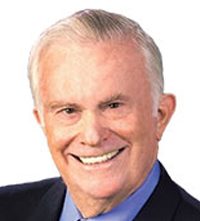Recession Odds Becoming Greater Danger
Inflation and higher costs — housing, food, etc. — combine to accelerate the negative.

The odds of a recession now appear greater than 50/50. This is especially true if the strong labor market and consumer spending tend to falter, as 2020 fell in its second half.
Such a possibility was already facing reality as the first half was ending. After the goods spending began to slow late in the spring, consumers began buying heavily because of the fear of the pandemic wave. Even worse are the Federal Reserve’s rate hikes, which further negates consumer spending.
Early in the second quarter of 2021, pulling back by consumers was already showing negatively. Much of this direction is already apparent because of a greater fear of inflation, plus even higher prices began to show themselves early in July.
But it’s not just the United States, where housing is running into stiff headwinds. Housing markets around the world are starting to weaken; this is already showing itself in the United Kingdom, Australia and Canada.
This is almost certain to spread elsewhere, as inflation and higher costs combine to accelerate the negative. It’s a certainty that such negativity is headed for the world’s largest markets.
Where previous quarters indicated government support of general growth, this is reversing into cutting back remaining inflation. Such a combination of government spending cutbacks and high costs, universally, makes overall economic fear the obvious result of negativity worldwide.
This, unfortunately, emphasizes a revenue-forwards-going economy, replaced by negativity, all over the world markets.
Buffett’s Berkshire Hathaway Again Boosts Energy
Warren Buffett recently made another $529 million expansion.
Buffett’s company, Berkshire Hathaway, bought 9.6 million more shares of Occidental Petroleum Corp. in June, according to a regulatory filing released recently.
The transactions, which were made over two days, bring Berkshire’s stake since October to about 16 percent.
Berkshire is Occidental’s biggest shareholder. It began buying shares in Occidental in late February after Buffet was impressed with the company’s approach. This included paying down debt, buying back shares and delivering dividend shares to shareholders.
The billionaire was further impressed with the overall approach with Occidental, which he felt would give his widespread growth even more impact.
Such moves have been a boom in Berkshire’s overall marketing success. As this ongoing success has grown, for Buffett, it’s been a continuous advancement and even greater value.
These moves have given Buffett and his partners a continuing market reputation. They go along with Berkshire’s representation, giving the thrust needed at a time when the market, as a whole, has gone through a period of fallback.
This ultimate stock market genius has been awarded an inseparable upward move, as the normal ups and downs, in general, have never allowed for impact on the ongoing upward success of Berkshire’s name, not matched by any other competitors.
New Commercial Space Technology
The U.S. military is closely analyzing the viability of new commercial space technology. It’s expected that the Pentagon will purchase the new space technology rather than design and build satellites and other space tech itself. The military will tap into private space companies for intelligence, surveillance, reconnaissance and similar aspects.
But first, rigorous testing must happen. Cognitive Space, a space mission analytics company, is already working with top brass to run rigorous real-world testing of special imagery, services and ground stations.
Small satellite constellations and low-earth orbit are of particular interest, such as the growing Starlink network of 2,500 satellites launched by SpaceX.
Because service comes from small satellites rather than one big one, the networks are less prone to technical malfunction or malicious interference.
Expect a new crop of satellite vendors to seek contracts from the Pentagon as it becomes more receptive to new companies and satellite technologies. Meanwhile, the traditional defense contractors are expanding their space offerings.
In information technology, using personal identification numbers and other factors is cybersecurity 101. But the multifactor authentication process is a struggle for Uncle Sam. With stronger security with the two-step process, even though agencies were required to do so by November 2021 per an earlier executive order, some outdated systems are either difficult or very costly to update.
Systems that lack this security measure remain vulnerable to cyber attacks. Some agencies will go a long time without it. They expect the sensitive systems to be impossible without it.





